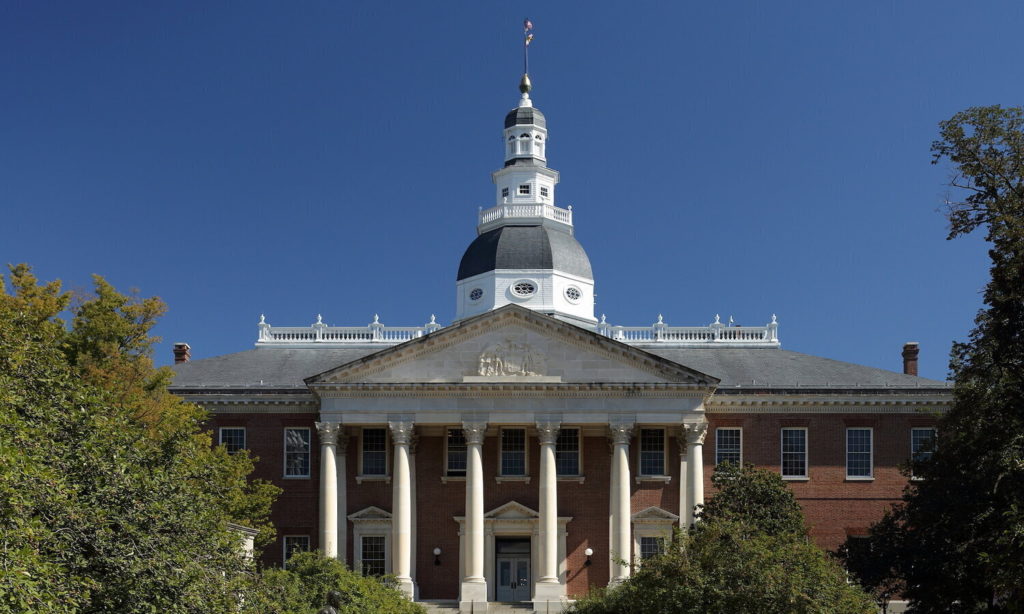Last week, on Mar. 18, cannabis legalization advocates showed up in Annapolis with a giant inflatable joint and a plain and simple message: Don’t allow the cannabis legalization bills proposed by the House and Senate to fail. The expiration date for both legalization bills—Senate Bill 708 and House Bill 32—was Mar. 22 and neither passed their chambers before that legislative deadline.
Even the organizers of last week’s protest admitted it was unlikely—they characterized their protest as “a last-ditch effort to legalize cannabis use and possession by adults before the Maryland General Assembly legislative session wraps up.”
Indeed, HB 32 received a hearing last month but was not voted on, while SB 708 received a hearing earlier this month but there was no further action.
A poll conducted by Goucher College showed 66 percent of Maryland residents support legalizing cannabis for adult-use.
Last year, as widespread uprisings against police violence brought people into the streets and dominated the discourse, there was growing awareness for cannabis prohibition’s role in disproportionately incarcerating Black people and increasing the likelihood of police encounters. But in Maryland, cannabis reform reamined slow going. After last year’s legislative session, where Maryland lawmakers couldn’t even get a decriminalization threshold increase bill passed, cannabis advocates entered 2021 with high hopes. But even this session’s numerous police accountability bills—which connected even more overtly to curbing police violence and radically reforming police—have been criticized for being “watered down.”
Marijuana Moment, who noted that Maryland, Hawaii, and Wyoming all failed the pass legalization, spoke to NORML MD’s Luke Jones yesterday.
“We will continue to see racially disproportionate enforcement throughout our state, resulting in tens-of-thousands of avoidable police encounters and more arrest records we will pay to expunge next year,” Jones said to Marijuana Moment. “Our next steps are to invite legislators to attend training sessions on issues of persistent concern, such as non-commercial home cultivation, traffic safety, protecting children, and the role of county and local government officials under a new approach to public safety.”
Maryland State House photo by Martin Falbisoner / Courtesy Creative Commons.

